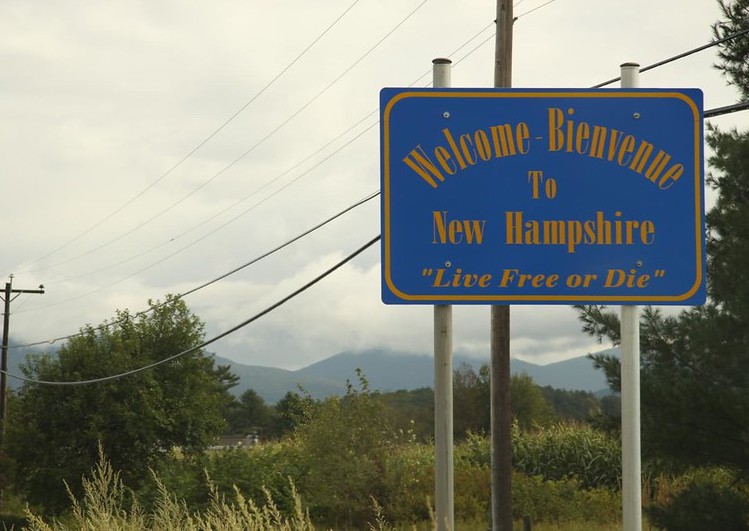
New Hampshire has filed a lawsuit in the United States Supreme Court over Massachusetts’ unconstitutional effort to raise taxes on residents of the Granite State.
Before the pandemic, roughly 80,000 people chose to live in New Hampshire and commute into Massachusetts for work every day. This arrangement has allowed them and their families to benefit from the New Hampshire Advantage – New Hampshire is one of nine states that do not tax wage income, one of five states with no statewide sales tax, and also prohibits local governments from collecting sales taxes.
“Households can keep more of their hard-earned income than if they lived in Massachusetts, which imposes a 5% income tax rate,” wrote Grover Norquist, president of Americans for Tax Reform in a recent OpEd in the Union Leader. “Living in New Hampshire also allows them to avoid the Bay State’s 6.25% combined state and local sales tax rate.”
For years, Massachusetts and New Hampshire have had an agreement in place for these New Hampshire commuters. “New Hampshire residents who work in Massachusetts must pay Massachusetts income taxes for days spent physically working in the Bay State; income earned on days spent working from home in New Hampshire is NOT taxed by Massachusetts,” explained Norquist.
But now, an emergency order from Gov. Charlie Baker’s (R-Mass.) Administration changed that deal. Through at least the end of the year, Massachusetts is forcing New Hampshire commuters who are teleworking due to the coronavirus to pay Massachusetts income taxes. “Even if New Hampshire teleworkers do not step one foot into Massachusetts while the order is in place, the Massachusetts Department of Revenue says they still have to send over a chunk of their paycheck,” wrote Norquist.
Fortunately for these commuters – and all taxpayers, for that matter – Gov. Chris Sununu (R-N.H.) and Attorney General Gordon MacDonald (R-N.H.) are fighting back against Massachusetts’ aggressive tax collectors. New Hampshire has filed a lawsuit against Massachusetts in the United States Supreme Court in hopes of stopping this tax grab.
“This is not just New Hampshire’s fight,” warned Norquist. As taxpayers continue to move from high to low tax states, money hungry lawmakers will continue to search for new ways to export their state’s tax burden.
To read Norquist’s full OpEd, click here.

